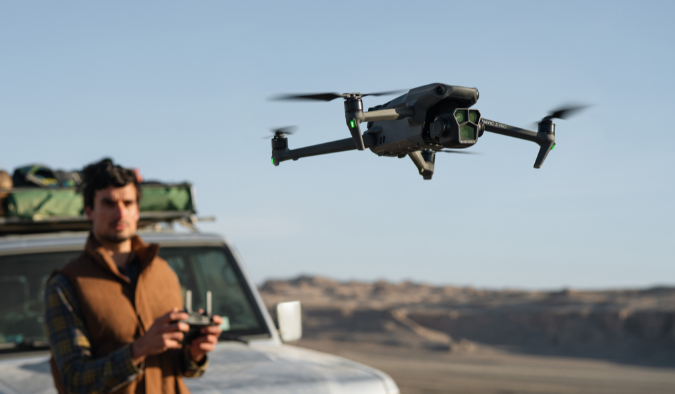
Earlier this year, a handful of members of Congress introduced a bill known as the Countering CCP Drones Act (CCCPD Act) which aimed to block new DJI products from entering the U.S. market and could potentially lead to existing FCC authorizations being revoked. In the following months, the bill appeared to gain traction, with amendments, and companion or similar legislation being introduced.
With the support of the drone community, we engaged key stakeholders and repeatedly emphasized how an act to remove DJI from the U.S. market would not just harm us but also the broader ecosystem of operators, businesses, and public safety agencies that rely on our products to innovate and conduct safe, efficient operations.
This week, Congress finalized and passed the NDAA, and we are pleased to share that neither the CCCPD Act nor any similar proposed legislation were included. To be clear, DJI is not banned from operating or selling products in the U.S. market.
While we do have concerns about certain provisions in the NDAA, we want to first express our gratitude to the drone community. Your tireless and thoughtful efforts to engage your Senators and House Representatives – sharing personal stories and explaining how anti-DJI actions would impact your businesses and operations – had a significant impact.
Your support made a real difference. Congressional offices paid attention and listened to what you had to say. Your voice still matters, and we will continue to work to ensure you have access to the innovative tools you rely on. On behalf of the entire DJI team, thank you for standing with us.
What’s Next?
Looking ahead to 2025, DJI will continue to engage members of Congress and advocate for policies based on technological merit, not country of origin. The NDAA calls for an “appropriate national security agency” to conduct a risk assessment on drones manufactured in China. While we welcome the scrutiny and look forward to the opportunity to demonstrate our privacy controls and security features, we have some concerns:
- Drones manufactured in China are singled out for scrutiny and the legislation does not designate a specific agency to undertake the required study.
- If no agency conducts a study to determine risk within one year, the legislation states that DJI and another Chinese manufacturer would automatically be added to the FCC’s Covered List. This means that DJI would be prevented from launching new products in the U.S. market through no fault of its own, but simply because no agency chose to take on the work of studying our products.
- There is no provision for any right of reply or due administrative process. Any technology audit is bound to find security flaws. For this very reason, DJI conducts regular audits of our own products and rewards outside security researchers for finding flaws through a bug bounty program. DJI deserves a right of response to any findings and an opportunity to fix any flaws that may be found and to discuss any additional security mitigations the designated agency recommends.
We therefore call on Congress to:
- Designate a relevant technically-focused agency to ensure the assessment is evidence-based.
- Grant DJI a fair right of reply to any findings.
This year has seen a flurry of legislative activity with potential implications for DJI’s operations. If you have been following these developments here on ViewPoints, we hope our updates have been helpful. With a new Administration taking office in 2025, next year will be equally critical, making it more important than ever to stay informed and engaged.
Thank you for your continued support. We’ll keep you updated as new developments unfold.
If you have any questions or feedback, you can reach out to [email protected].
Topics: Get The Facts



